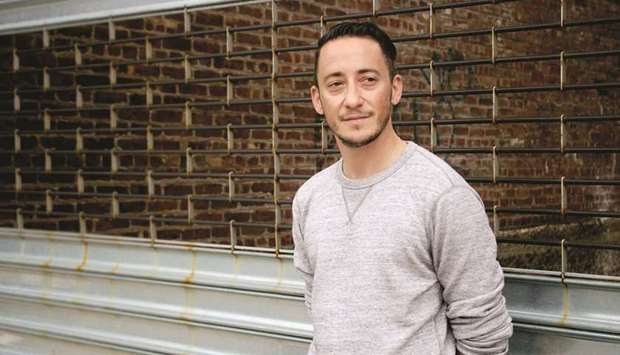Thomas Page McBee’s Lambda Award-winning debut memoir, Man Alive, was his exploration of what it means to be a man after making a physical transition to the male gender in 2011. McBee never identified as a woman (he says he was “ ‘gender nonconforming’ before that phrase existed”), and his writing asks questions about gender that he believes are relevant to all people, trans or not. His new book, Amateur: A True Story About What Makes a Man (Scribner, 204 pp., $24), probes the culture (or cult) of masculinity through, among other things, his experience as the first trans man to enter the boxing ring at Madison Square Garden, where he competed in a 2015 charity event when he was 34. Newsday spoke with McBee by telephone; the conversation has been edited for length and clarity.
When you were training for your boxing match, you noticed that men at the gym were comfortable in one another’s space. What are the benefits of that kind of experience?
Masculinity is fragile for so many men, and boxing created space for men that were around me to be a lot of things I hadn’t seen men be — like caring and tender and vulnerable, and touching each other with love and care. When you lift the veil of the performance of being a man, where it’s all about homophobia and showing how strong you are and not needing anyone, all of that stuff sort of disappears. In boxing, you really need the other person. There’s such an intimacy with sparring, because you’re not fighting, you’re actually learning from each other. You also are failing all the time. That’s part of the sport.
You write about how you and your wife, Jess, had the same socialisation, growing up. Could you talk about how you integrate that with your experience after transitioning?
I wrote that in part because I shared with the women in my life the thing that unites all people who aren’t men, which is the need to protect oneself from male violence. Having experienced that myself, I definitely was socialised in that way.
How would you like to see the media reflect trans people?
We could do better if we remove the lens of othering, which I think is super problematic, not just for trans people, but actually for everyone. Trans people have a gender and so do women who aren’t trans and so do men who aren’t trans. I believe there’s an opportunity for a lot of people who aren’t trans to reflect back on their own gender identity. If you don’t do that, no matter how progressive you are, you’re not truly an ally to anyone else because you don’t understand your own place in the world.
What drove you to write this book?
Men are deliberately socialised not to be vulnerable from a young age. After I transitioned, I could feel myself losing that vulnerability. For the book, I drew on my reporting background to call various experts with questions like, “Does testosterone make you aggressive?” I was really afraid the answer was yes, and that there was some sort of horrible lineage to being a man that I was now part of that I couldn’t escape. But in fact, I’ve learned that because we’re responsive organisms, the way culture acts on us changes our biology. I believe we all have the ability to identify that and stop it, in the same way we can stop cyclical violence and other kinds of trauma.
Our culture tells us that boys need a strong father figure. Do you see any truth in that, or do you feel fulfilled by finding strong role models elsewhere?
My mom was a really big influence on me because she was transgressive. My boxing coach was ultimately an amazing model of what a man could be, and also some of the other guys I trained with. I just feel very conscious of everyone in my life who’s helped form me, especially in the last seven years since I transitioned. My hope is that when people read my book, they see themselves in it. That’s what I want it to do: create a world where we could see each other in these stories and not see them as trans stories or even just masculinity stories. —Newsday/TNS

CANDID: u201cMasculinity is fragile for so many men, and boxing created space for men that were around me to be a lot of things I hadn’t seen men be,u201d says Thomas Page McBee.
